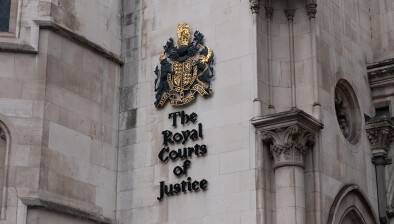Court of Appeal: Appeal allowed in relation to novel question of law on Protected Disclosures Act 2014

The Court of Appeal has determined that once a complaint is made to the Workplace Relations Commission, it operates as a complete bar to seeking redress in tort under s.13(1) of the Protected Disclosures Act 2014.

About this case:
- Citation:[2024] IECA 294
- Judgment:
- Court:Court of Appeal
- Judge:Ms Justice Niamh Hyland
Delivering judgment for the Court of Appeal, Ms Justice Niamh Hyland confirmed: “Section 13(2) manifestly envisages that the die is cast once a person has made or presented the complaint. There is absolutely no conditionality in respect of the election having regard to what happens to the complaint before the WRC (or indeed before the courts if the tortious route is chosen).”
Background
The respondent, Mr Hosford, worked in the Department of Social Welfare from 1985 to November 2019, when he claimed he was constructively dismissed.
In 2009, the respondent came into conflict with his employers regarding the appropriate classification of individuals working in companies of which they were directors and shareholders and whether those individuals might be classed as self-employed for pay-related social insurance purposes.
A multitude of hearings took place as a consequence of this dispute, with the proceedings before the Court of Appeal concerning emails sent to the respondent by his employer in 2019. The respondent alleged that those emails constituted penalisation arising from a protected disclosure made by him and that his resignation constituted constructive dismissal.
The respondent complained to the Workplace Relations Commission (WRC) in August 2020 and in July 2021, the adjudication officer determined as a preliminary issue that his complaints were outside the statutory time limit. No appeal was taken to the Labour Court by the respondent.
Nearly a year after the WRC decision, the respondent issued High Court proceedings seeking inter alia relief in tort pursuant to s.13 of the Protected Disclosures Act 2014 (as amended). He argued that because his claim was not adjudicated upon in substance by the WRC, he remained entitled to pursue a claim under s.13.
The High Court
The trial judge refused the appellant’s application to dismiss the respondent’s claim on the basis that the issue of whether s.13(2) operated as a complete bar on a person pursuing a claim in tort in respect of the same matters which were dismissed by the WRC as being out of time gave rise to “a novel and complex issue of law” which would “be inappropriate for determination on a motion to dismiss”.
In particular, the trial judge observed that a potentially anomalous position was created by s.12 and s.13 of the 2014 Act, which provide for alternative remedies and an obligation to elect between them where the time limits applicable to the remedies are different.
The trial judge pointed out that the time limit for a cause of action in tort is the normal six-year time limit under s.11(2) of the Statute of Limitations Act 1957, whereas the relevant time limit for a penalisation claim is six months, extendable for no more than a further six months and that a claim under the 1977 Act imposes a similar time limit.
In particular, the trial judge wondered whether the plaintiff’s election of a remedy that was statute-barred prevents him from pursuing a remedy that arguably is not, and refused to dismiss the claim.
The minister appealed to the Court of Appeal.
The Court of Appeal
Ms Justice Hyland was satisfied that the complaints in the proceedings before her were identical to those the subject of the WRC proceedings and that the plaintiff was bringing proceedings under s.13 as he had not been facilitated with an extension of time to bring his complaint by the WRC.
The court set out that s.13(2) precludes a person from pursuing alternative reliefs in the respect of the same matter, in that a person must elect between seeking a remedy in tort under s.13(1) and seeking redress under Schedule 2 of the 2014 Act or the Unfair Dismissals Act 1977 (as amended).
Finding that the respondent had made and/or presented a complaint to the WRC in respect of penalisation and unfair dismissal arising from his protected disclosures in August 2020, the court found that the thrust of the respondent’s argument was that s.13(2) was unfair and/or unconstitutional and that the court must have discretion to interpret the section more widely so that it does not apply where there was no substantive determination by the WRC.
Ms Justice Hyland opined: “The meaning and purpose of s.13(2) is in my view crystal clear. It represents a decision by the Oireachtas to establish alternate paths of redress for persons who harm following the making by them of a protected disclosure.”
The judge continued: “One option is the well-trodden path of existing statutory procedures before the WRC, as supplemented by the 2014 Act (see Schedule 2). This may either be in respect of a penalisation claim or an unfair dismissal claim. This is the s.12 route. The other, entirely novel, path is to rely on the right of action in tort created by s.13(1) against the person alleged to have caused detriment.”
The court reasoned that it was arguable that the class of persons who could look for a tortious remedy was wider than those who could seek redress under s.12 as s.12 was limited to employees only.
Ms Justice Hyland emphasised that those differing paths “are not cumulative” and that the difference between the routes could not be used to undermine the clear language of the statute.
Applying Heather Hill v An Bord Pleanala [2022] IESC 4 to the interpretation of s.13(2), the judge found that the context of s.13(2) included two distinct regimes — that established by s.12, being a prohibition on penalisation due to a protected disclosure, and the creation of a new tort by s.13(1) in respect of the detriment to a person sustained as a result of a disclosure.
Finding that nothing therein disclosed any basis for reading s.13(2) other than in its natural and ordinary meaning and that no ambiguity arose therefrom when read in context, Ms Justice Hyland clarified that s.13(2) “manifestly envisages that the die is cast once a person has made or presented the complaint. There is absolutely no conditionality in respect of the election having regard to what happens to the complaint before the WRC (or indeed before the courts if the tortious route is chosen).”
Conclusion
Accordingly, the Court of Appeal allowed the minister’s appeal and dismissed the proceedings as bound to fail under O.19, r.28 of the Rules of the Superior Courts.
Hosford v Minister for Employment Affairs and Social Protection [2024] IECA 294









